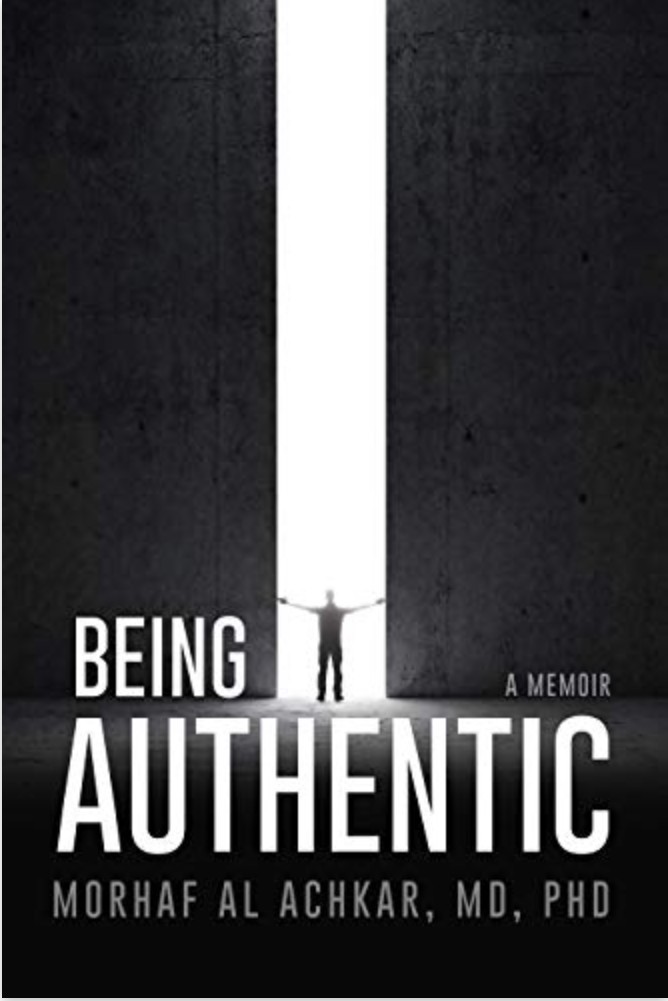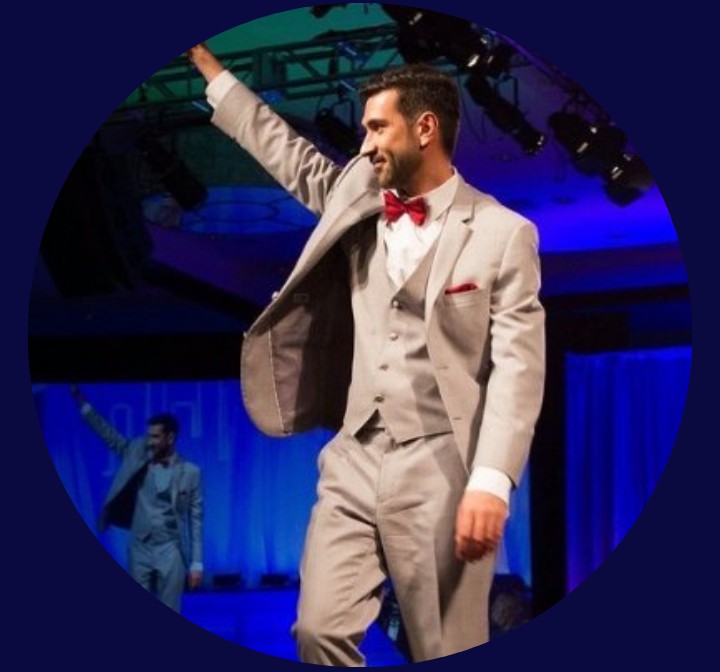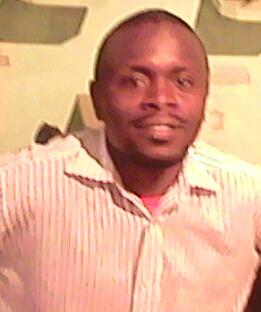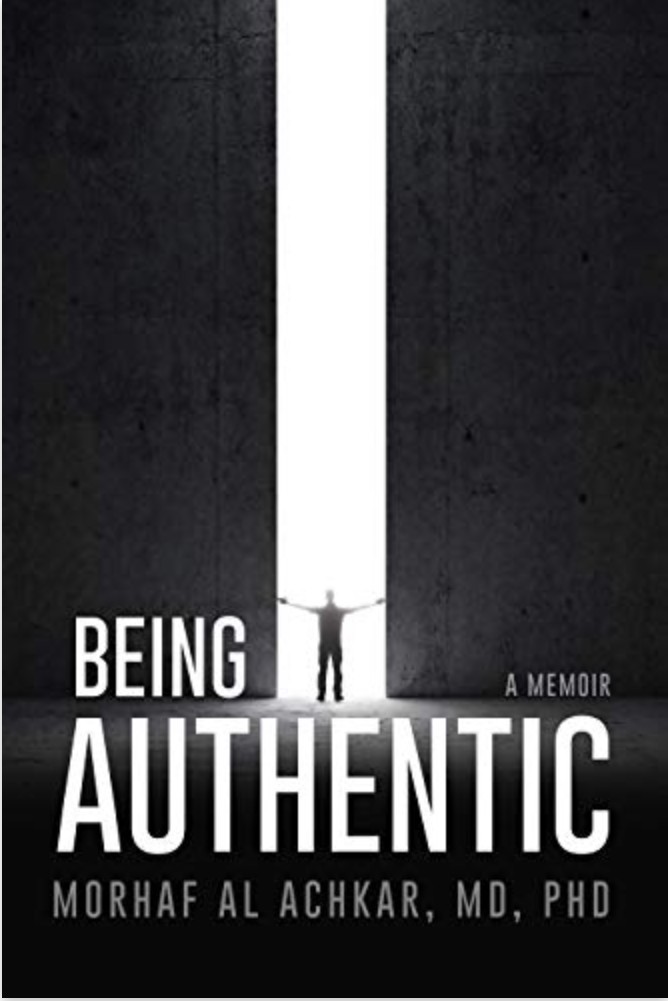I recently stumbled upon a book that has in a way changed the way I view life. The things I take for granted like good health and the ability to travel wherever I want when I want are not available to some people. Poor health and being vulnerable to other diseases can limit one’s movements, as has happened to Morhaf Al Achkar.
He talks about his health and the COVID-19 in his new book, Being Authentic. This book gives you all the reasons why you should celebrate life to the full when you still have it, as long as you take good care of yourself.
With the world’s over 7 billion humans angling for space and attention, at times it is not easy to decide whom to lend an ear. The modern mouthpiece, which is the social media, is so dominated by the celebrities and politicians that other low-key but critical voices may shout themselves hoarse but still get no earpiece. Morhaf Al Achkar is one of those low-keys.

When I began to read his book, I was somewhat disinterested and out of touch. As I realized later, this is one book you should not judge by its cover. The cover design did little in terms of motivating me to pick this gem of a book.
Morhaf Al Achkar is an accomplished physician with an M.D. and Ph.D. after his name. That’s remarkable, considering he is only 37 years old and an immigrant from troubled Syria.
However, that’s not all — he also has stage 4 cancer. With everything else held constant, he can comfortably live for a couple of years. Then there is COVID-19 virus lurking on the door-handles, chair arm-rests, tables, computer mouse and keyboard buttons. Cancer has already considerably weakened his immune system, and an opportunistic disease like COVID-19 may find it easier to penetrate the remaining barriers.
But this double-vulnerable doctor is not sitting idly, resigned to his fate, waiting for the ripper. He has an important message that he is determined to convey and he presses on, typing, typing…and hammering it in with urgency, because time is not on his side.
The book revolves around cancer and the still-on-the-front-page coronavirus epidemic, but it is more than that.
First things first, though. The story properly begins in Aleppo, Syria. From there, it unexpectedly retreats to the United States and from there, it briefly spreads its wings across other countries and eventually holds on to the U.S.
The philosophical introduction is outright gloomy—nothing to smile about. However, the moment you step past the opening, it is suddenly sunlight as Achkar, filled with nostalgia, talks about his mother who is concerned about her kids’ welfare to a fault — she gets over-reactive if she feels specific actions or inactions are compromising their future.
She is also genuinely kind and always emphasizes the value of education. Her passion for education lays the foundation for who Morhaf eventually becomes in life. Politics and any other endeavor should come after education, she correctly insisted.
On the other hand, the equally well-meaning father taught the author to be courageous. You will be amazed to learn how he taught his son to swim or ride a bicycle. To thrive under the totalitarian, hawk-eyed, insecure, corrupt, and brutal Baath Party regime, the father (and the family at large) adopted the see-no-evil-hear-no-evil stance. Later in life, Achkar challenged this family policy.
I could not stop smiling as I read along, seeing myself in some of Morhaf’s childhood anecdotes. He cherished those sweet moments he spent with his privileged family, and that’s why now, as the clock ticks, he finds solace in them.
He must set the record straight now. By telling his own story, he rightly believes that he is making his fair contribution towards the well-being of our planet. Morhaf strongly believes in humanity. Perhaps too much. He values and is positive about life and the future of mankind (or humankind if I should be gender-sensitive).
Morhaf Al Achkar is not just addressing the audience. He is talking to his soul as well. There are intense reflections towards the end. Rarely does a man open his heart so widely and invite people in.
When you talk to yourself, the conversation must, as a necessity, be authentic. That’s the essence of soul-searching. In this no-holds-barred engagement, expect apologies and no apologies. As he points figures at president Assad, he also owns up to his own little shortcomings, like when he stole a neighbor’s pomegranates or selfishly used his family’s privileged name to gain access to the public bakery.
I was held spellbound as he explained in clear, simple terms why he did or didn’t do this or that and so should be exonerated. These humbling confessions are impressive.
He has beautifully focused on his story and maintained brevity, skipping the non-essentials. But not at the expense of his position on some of the burning issues in the USA that directly or indirectly impact his inner peace and outward joy. One such issue is racial discrimination and the political pronouncements that determine its direction. Far from glossing over it like some compromised writer with eyes only on the book sales, he has exhaustively tackled it.

I think it would have been absurd if a Syrian immigrant in the USA gave racial discrimination a wide berth in a book that proclaims authenticity in every other couple of pages. To balance the scales, he has also not left out the current social and political situation in Syria. After all, he is primarily a victim of the wrong political decisions or oppression in Syria.
Other hot, touch-me-with-a-long-spoon matters he has grappled with are the QLGBT, abortion, and the place of religions or God in his life.
I don’t (and maybe you won’t ) agree with him on some of these issues, but I must admit he is an open-minded thinker who also happens to be a decent, disciplined, well-meaning, respectable human being. Within a short period he accomplished, through sheer hard work and determination, what many people under similar situations would not.
His well-balanced, respectful opinions plus his achievements debunk before your face the stereotypical notion that people from certain countries are only good at ranting, threatening, or hurting others.
You are going to fall in love with the writer, not because of his noble academic achievements, but because he has put humanity first and, towards the probable premature end of his life, he wants to bequeath us his valuable hindsight because he believes we can improve. I seem to have lost faith in the human race. We only improve other things like machines, not our hearts. I think we should read a book like this one if we are still serious about improving.
I also believe that when Achkar dies, it shouldn’t be like the fall of a tree in the forest that catches no attention. The seven billion people on earth, if it were possible, should stop to observe a minute or two of silence.
Being Authentic is available at Amazon.


